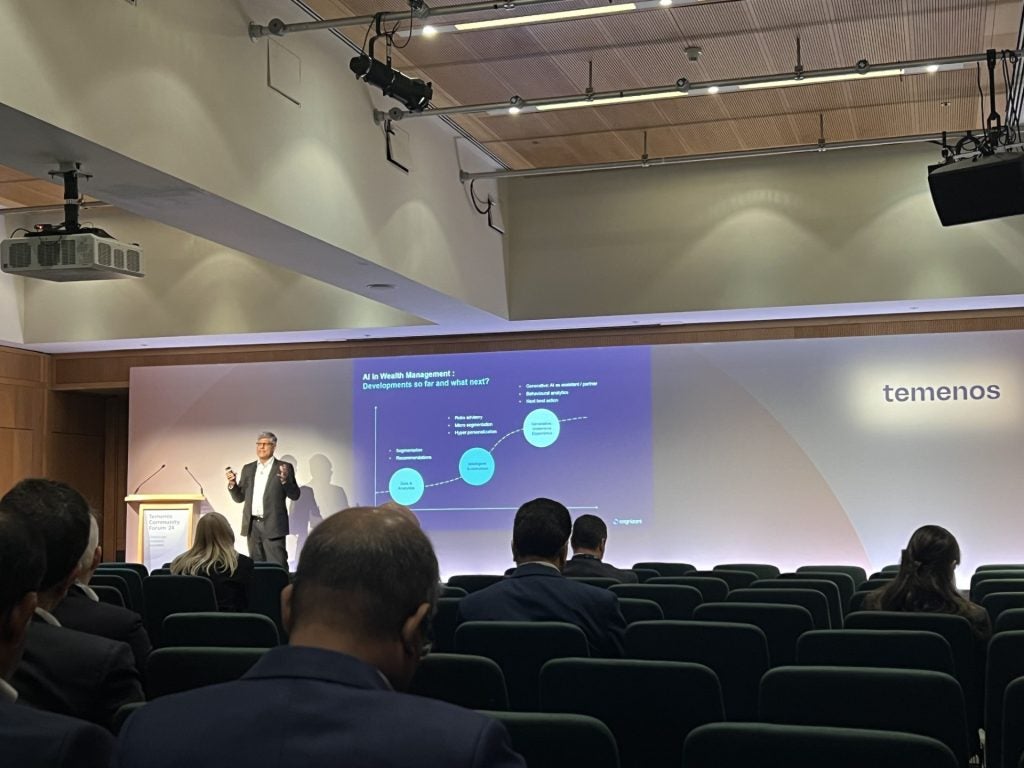New entrants continue to break
into the UK’s wealth management market. Aiming to gain a foothold
through value-for-money private banking, the newcomers all have the
same basic message: too many of the big established players have
turned into expensive sales outlets for product
pushing.
Germany’s Berenberg Bank, the
former chairman of Adam & Co and Pavilion Investment House may
have very different origins but all three have signaled plans to
break into the UK market, exploiting what they regard as deep flaws
in much of the present private clients business.
All three have similar business
models – a return to quality advisory relationships that put the
client first and gain market share from “product pushers” – those
banks with a strong sales culture.
 As Ray Entwistle, who departed as chairman of Adam
As Ray Entwistle, who departed as chairman of Adam
last year and who plans his new private bank with offices in
Edinburgh and London, puts it: his new creation will not be “a
faceless operation looking to sell products”.
“In my view, the average private
banking client wants to be looked after, but not actively sold to,”
Entwistle adds.
How well do you really know your competitors?
Access the most comprehensive Company Profiles on the market, powered by GlobalData. Save hours of research. Gain competitive edge.

Thank you!
Your download email will arrive shortly
Not ready to buy yet? Download a free sample
We are confident about the unique quality of our Company Profiles. However, we want you to make the most beneficial decision for your business, so we offer a free sample that you can download by submitting the below form
By GlobalData“Our bank will be based around the
true values and traditions of the great British private bank where
the service is rendered on an entirely personal basis via dedicated
and highly trained discreet personnel.
“It will be an institution which
places the emphasis on providing the highest quality of service
rather than just a faceless operation looking to sell
products.”
Entwistle says his new venture is
determined to develop a close relationship with its clients and
their families so that they feel that the bank belongs to them.
“We want to know our clients and
provide them with a decision-making process which facilitates a
speedy and efficient response to their needs,” he says.
A similar message comes from
Berenberg, which has hired two new managing directors from Barclays
Wealth to head its assault on the UK market. Ross Elder and Fred
Hervey will be heading the private banking team from the bank’s UK
headquarters in Threadneedle Street.
“The bank’s culture focuses on
personal commitment, trust and responsibility which enables us to
be relationship-led as opposed to sales-led with our clients,” says
Hervey.
The other new entrant is Pavilion
Investment House, an advisory boutique set up by two former senior
UBS Wealth Management staff Matthew Hulme and Campbell Gordon.
Hulme says he had become
disillusioned with the UK private banking industry, with its high
charges and a failure to deliver a true open architecture
proposition.
Pavilion, the UK arm of the
Canadian financial advisory, was formed because bulge bracket
banks, smaller boutiques and many multi-family offices are failing
to provide the service that their clients deserve, Hulme says.
Pavilion says it will deliver
“independent, intelligent advice, excellent investment solutions
and high quality institutional execution alongside high-calibre
reporting and a highly flexible, custodian-agnostic platform”.
The type of quality service at a
competitive price will be one of the central plans of the Berenberg
approach. Elder insists that his bank will have a “genuinely open
architecture approach.”
This will help the bank “to rebate
all commissions from all third party funds, something which is
already coming down the track with the RDR [retail distribution
review] framework”.
Elder says Berenberg will be
looking at various innovative ways to manage discretionary accounts
for clients, and how performance fees can be structured.
“We won’t be conflicted in what
funds we can offer our UK clients. We are not going to have a
sales-led culture,” he adds.
Crispin Odey, the high-profile
investment manager behind Odey Asset Management, has been one of
the most outspoken new entrants.
He launched a UK wealth management
proposition last year to address the “raw deal” he believes
existing wealth managers provide to their clients.
Build and protect
capital
The venture, Odey Wealth
Management, provides private clients with the same investment
research capability that has earned Odey his reputation by using
asset allocation and stock selection to build and protect
capital.
Last year, Odey declared that the
‘Big Bank’ model had died after the financial crisis in
2007-2008.
“I’m calling an end to the raw deal
served up by many providers in the wealth management industry,”
Odey said at the time.
“Too many so-called professional
investors embrace mediocrity by seeking consensus views that starve
private clients of performance while lining the managers’ pockets
with high and often hidden charges.”
The charging structure for the new
venture’s portfolio management service will be a flat 1%.
True client-centric
approach still rare
Despite such criticisms of the
existing wealth management industry, analysts caution that the
wealth business – big players and small – still has a long way to
go to create true client-centric practices.
Seb Dovey, managing partner at
wealth consultancy Scorpio, says banks are only just beginning to
recognise the importance of the client insight in the role of
directing strategic expansion.
“Often, smaller entities remain
convinced that, as they are close to their clients they do not need
to get the insight and so typically press on with the product
development of their own,” Dovey says.
“They differentiate often by
maintaining that the big banks are pushing products and
undifferentiated, particularly when it comes to advice.”
But Dovey says Scorpio’s own
research does not wholly support such a simplistic picture of small
banks, good for clients, big banks bad.
“If you are able to find a listening bank, let alone an
old-fashioned one, let me know,” he says. “Crucially, it is not
just a case of listening, the advisers will argue they do that and
they do, but it is a case of reacting to what they hear at a
corporate level.”
See also: Adam’s
offspring boasts an impressive pedigree, despite lacking trading
name
See also: Banking the
Berenberg way







